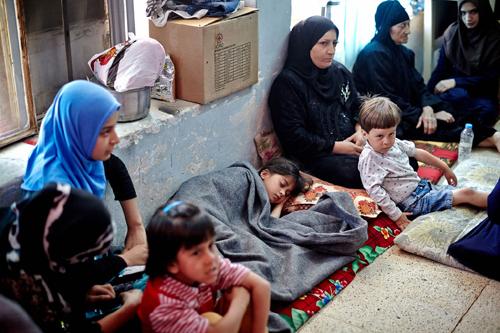 nil
nil
Impact of Iraq conflict on minorities 'devastating and irreversible': UN rights experts
New York, July 26 (IBNS) Two United Nations human rights experts warned on Friday that ethnic and religious minorities in Iraq are bearing the devastating and irreversible brunt of the conflict that has once again engulfed the country.
“I am gravely concerned about the physical safety of several minority groups in Iraq, including Christians, Shia – a minority in the North, Shabaks, Turkmen, Yazidis and others, who are being persecuted on the grounds of their religion and ethnicity,” said the Special Rapporteur on minority issues, Rita Izsák, in a joint press release with the Special Rapporteur on the human rights of internally displaced persons, Chaloka Beyani.
“Reliable information indicates that religious minorities are being targeted and their members subjected to abductions, killings or the confiscation of their property by extremist groups,” Izsák said.
The “Islamic State” (IS) and associated armed groups have taken control of several cities and regions in northern Iraq in recent weeks. They are accused of gross human rights violations, some of which may amount to war crimes and crimes against humanity, including targeting and killing civilians.
The experts noted that civilians in areas under the control of the Islamic State are reportedly required to adhere to a strict interpretation of Shari’a law or face death, irrespective of their religious backgrounds.
“In Mosul for instance, members of minorities were given an ultimatum that by 19 July, they should convert, pay a tax, leave the city, or face execution,” Izsák said. “Credible reports suggest that some members of the Yazidi and Shabak communities who refused to do so were taken before religious courts and later executed.”
Large numbers of Christians have already fled Mosul, including some 350 families who left on 19 July for northern Ninewa and Dohuk, which are under Kurdish control. According to sources, only a few Christians, who are extremely poor or unable to travel, remain in the city.
Echoing Izsák’s concerns, Beyani said that the ongoing conflict has already displaced some 1.2 million people, mostly minority members who have fled the northwest of Iraq.
“This huge displacement is turning into a humanitarian crisis,” he said. “History has shown that minority communities are particularly vulnerable to displacement. Special protection for them and other internally displaced people in Iraq is now vital.”
Those responsible of committing heinous human rights violations must be held accountable, the experts stressed, urging the Iraqi Government to do its utmost to protect the most vulnerable.
Izsák and Beyani, who are appointed by the UN Human Rights Council and work in an independent and unpaid capacity, called on the international community to stand ready to provide all the required assistance and support, including humanitarian assistance, to stop the spiral of violence that threatens all Iraqis and to ensure the survival of its most vulnerable minorities.
Meanwhile, the Secretary-General’s Special Representative for Iraq, Nickolay Mladenov, has condemned in the strongest terms the recent destruction of the Prophet Jonas tomb and mosque in Mosul, as well as several other historic monuments symbolizing shared history and traditions.
Mladenov, who is also head of the UN Assistance Mission for Iraq (UNAMI), said that the systematic persecution of minorities and the destruction of cultural heritage and ancient landmarks, sacred to both Islam and Christianity, show the Islamic State’s total contempt for human values.
“The systematic persecution of minorities and obliteration of some of Iraq’s ancient landmarks must be condemned by the international community,” he stated.
A young girl sleeps surrounded by relatives in their new home, a primary school in Alqosh, Duhok, after fleeing their home in Mosul. Photo: UNHCR/S. Baldwin
Top Headlines
-
News
India to roll out vehicle-to-vehicle communication technology by 2026 to boost road safety
January 08, 2026
-
News
Qualitatively different: Supreme Court shuts bail door on Umar Khalid, Sharjeel Imam in Delhi riots case
January 05, 2026
-
News
Kolkata CP urges elderly to stay alert against digital scams at Pronam interaction
January 03, 2026
-
News
New Year gift for rail passengers! PM Modi to flag off first Vande Bharat sleeper in January all details
January 02, 2026
-
News
Hindu man stabbed and set ablaze in Bangladesh survives by jumping into pond; fourth attack in two weeks
January 01, 2026
-
News
Sona Incubations, Salem picks 17 startups for Rs 11 Mn DST investment, grant
December 30, 2025
-
News
Visva-Bharati University unveils a transformational roadmap under Vice-Chancellor Dr. Probir Kumar Ghosh
December 29, 2025
-
News
Reject Macaulayan education, reclaim Indian values: H M Bangurs big World Hindu Economic Forum pitch
December 21, 2025
-
News
Horror in Bangladesh: Hindu man lynched and set on fire amid violent protests
December 19, 2025
-
News
Buried at home: UP man arrested for killing wife, two daughters over burqa dispute
December 18, 2025





